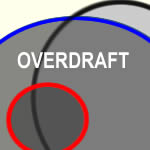In 2023, Miss M asked HSBC to produce the Consumer Credit Act(CCA) agreements for her debts.
If a creditor cannot produce the CCA agreement for a relevant debt, the debt is unenforceable in court and the consumer can stop paying it. The older a debt is, the less likely it is that the CCA agreement can be found. Miss M’s debts were very old.
Asking for the CCA agreement is a simple procedure in most cases:
- there is a set form of words to use, see How, When and Why to ask for the CCA agreement which has a link to the template;
- if the creditor produces a copy of the CCA agreement, the debt can be enforced in court. So if the customer doesn’t want to get a CCJ, they need to make a payment arrangement with the creditor;
Miss M asked for CCA agreements for other old debts had been sold to Cabot, Link and Lowell. These were all resolved within a few months: the CCA agreements couldn’t be produced, the creditor accepted the debt was unenforceable and Miss M stopped paying.
HSBC had not sold Miss M’s debt, so the CCA request went to HSBC. This request took more than a year and had to go to the Financial Ombudsman. This is the story of what happened and why HSBC has had to pay compensation.
What HSBC said when asked for the CCA agreements
When a creditor can’t produce a CCA agreement, they normally reply saying that, and that the debt is unenforceable.
But HSBC replied that they couldn’t produce the CCA agreements as the debts were so old, but Miss M remained legally liable for the debts.
It is quite true that the debts still legally exist. And as Miss M had been paying them they could not be statute barred, so Miss M was legally liable for them. But that is not relevant to whether the debt is enforceable in court or not.
This what is known as a “straw man” argument. Rather than reply to Miss M’s question about whether the debt was enforceable, HSBC was choosing to reply to a question it had not been asked – is Miss M liable for this debt.

Mis M asks HSBC again
Miss M tried again, going back to HSBC asking them to confirm that the debts were currently unenforceable. She quoted the FCA’s rules on this, which say:
CONC 13.1.6
(1) Failure to comply with the provisions [to produce the CCA agreement] means that the agreement becomes unenforceable while the failure to comply persists, and the courts have no discretion to allow enforcement.
(2) In such cases, a firm should in no way, either by act or omission, mislead a customer as to the enforceability of the agreement.
HSBC again ignored this request about enforceability. They replied:
Due to the time passed there is limited information available. I’m unfortunately unable to locate the original agreement for both accounts. As you are liable for the debt, we would pursue any outstanding balance on accounts with us until the debt has been settled.
Miss M felt this was threatening so she had to keep on paying these debts. But she sent the complaint to the Financial Ombudsman (FOS).
The FOS adjudicator agreed with HSBC
The FOS adjudicator decided:
In line with their data retention policy, HSBC only retain most data for six years. As such, HSBC haven’t been able to provide the documentation Miss M requested as they no longer hold it. This itself wouldn’t invalidate the debt. And as I’ve seen no evidence to show it isn’t enforceable, I don’t feel that HSBC have acted unfairly.
To a debt adviser, this was getting silly. HSBC can’t produce the CCA agreement. The FCA rules point out that if the CCA agreement is not produced, a court cannot decide the debt is enforceable – the fact that HSBC followed its GDPR procedures is irrelevant. What is the point of the FCA’s CONC 13 rule if a firm can just say, oh it’s an old debt so we got rid of it?
So Miss M asked for the complaint to go to an Ombudsman for a final decision.
The Ombudsman upholds Miss M’s case and order compensation
Here is the Ombudsman’s final decision.
At first. HSBC gave the Ombudsman the run-around…
Initially, I asked our investigator to contact HSBC to specifically check whether the debts remained enforceable in court or not. HSBC’s response simply reiterated its view that Miss M remains liable.
But the Ombudsman persevered:
When I went back to HSBC directly, the query was referred to its legal team. At that point, HSBC responded and confirmed that, in the absence of the credit agreements for the credit card, current account and loan, it would be unable to take legal action to enforce the debts. HSBC also confirmed that no such action was planned and reiterated an outstanding balance remains.
At last HSBC has admitted that without the CCA agreement, it is unable to take Miss M to court.
The Ombudsman noted that the length of time HSBC had taken to confirm its stance on enforceability had been distressing for Miss M and ordered £250 compensation. Miss M also provided evidence showing that she had ceased payments to other creditors when they said the debts were unenforceable – so the Ombudsman also ordered a refund of the £341 Miss M had paid to HSBC since last summer.
A good result in the end!
More articles:

Ask for the CCA agreement for old debts

Can you get an overdraft refund?

7 ways to speed up your DMP